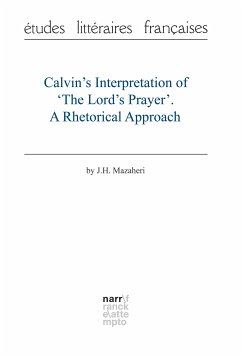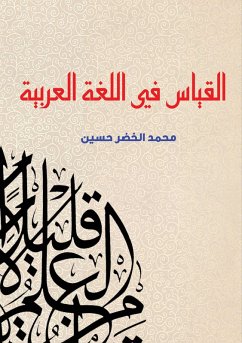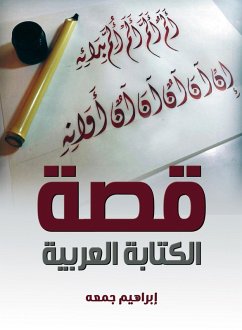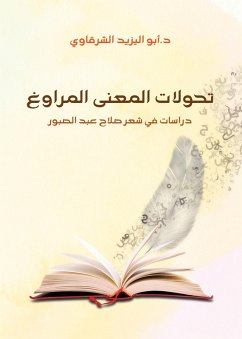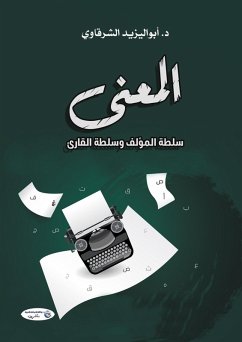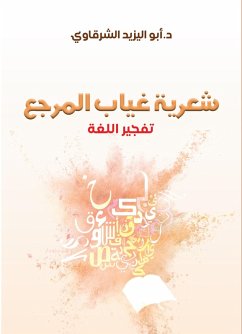
The end of Arabic poetry... rhetorical austerity (eBook, ePUB)

PAYBACK Punkte
0 °P sammeln!
In the eighties of the last century, there was a "cultural-critical openness" to the approaches of European critical thought, and we fell captive to the "illusion of truth" after we became convinced of Western centralism, and that the pinnacle of theories, science, and thought were all products of the West, so all our efforts became represented in "citing" Western statements. For everything we say. This position produced a critical momentum, which was not accompanied by an applied critical effort that convinced the feasibility of "critical openness," and you will discover the paradox between t...
In the eighties of the last century, there was a "cultural-critical openness" to the approaches of European critical thought, and we fell captive to the "illusion of truth" after we became convinced of Western centralism, and that the pinnacle of theories, science, and thought were all products of the West, so all our efforts became represented in "citing" Western statements. For everything we say. This position produced a critical momentum, which was not accompanied by an applied critical effort that convinced the feasibility of "critical openness," and you will discover the paradox between theory and practice, and perhaps deconstructive criticism is the best example of this. You can find thousands of studies on deconstruction, translated and written, in which you will find interesting cultural entries on deconstruction. Its history, the project of dismantling Eurocentrism, and the debate over its confusing terms such as deferral and difference, you will find serious studies on controversial points, but at the same moment, if you search for a true deconstructive critical study, you can raise it and say with reassurance: This is a critical, deconstructive study. You will find difficulty and difficulty, as some studies come close in some way. Of deconstruction, but it is not a deconstructive study in the sectarian sense. This is an example of the absence of the applied dimension in our contemporary criticism. In this context, the value of this study comes because it completely distances itself from this interesting and interesting cultural debate, and enters directly into confronting modern poetic texts.
Dieser Download kann aus rechtlichen Gründen nur mit Rechnungsadresse in A, B, BG, CY, CZ, D, DK, EW, E, FIN, F, GR, H, IRL, I, LT, L, LR, M, NL, PL, P, R, S, SLO, SK ausgeliefert werden.




